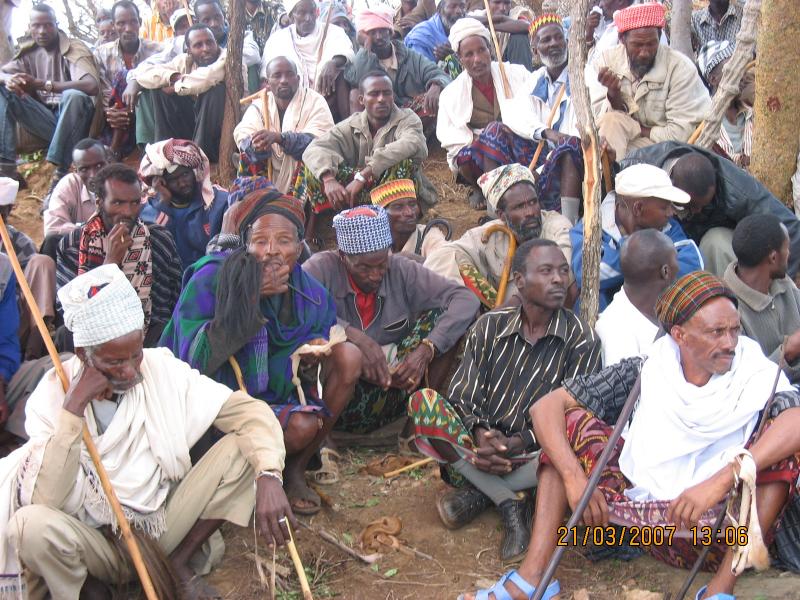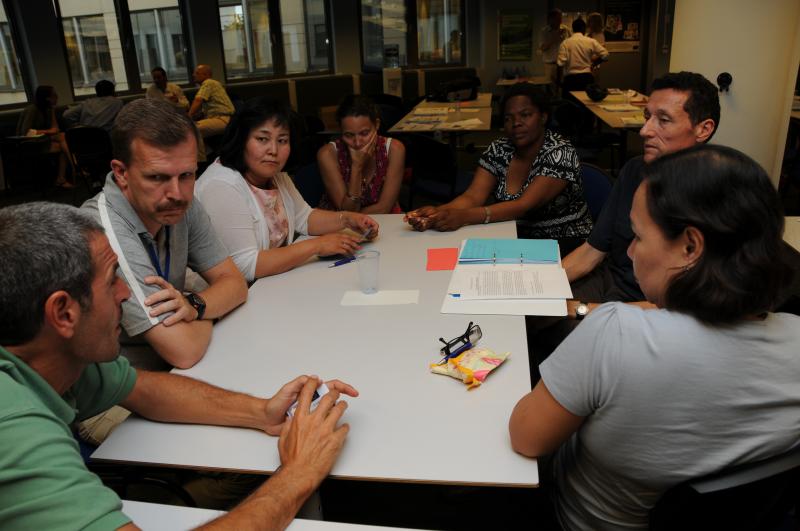The roaming farming practices of nomadic pastoralists may appear to have altered little in hundreds of years, but in today’s unpredictable age of climate change these ancient practices may hold the key to flexible farming in hostile environments and donors should do more to support them, say experts.
Generations of learning to cope with the vagaries of arid climates, such as those in northern Kenya, have equipped pastoral communities there with many skills that will serve them well in this age of climate unpredictability.
“In a changing climate, pastoralism has well developed adaptable mechanisms that adapt, through their mobility and flexibility, to the changing climate,” said Daoud Tari Abkula, who is a pastoralism adviser and founder member of the Pastoral Thematic Group – set up in 2001 to ensure the voices of pastoral groups in Kenya were fully represented in the country’s poverty reduction strategy paper.
“So pastoralists are ahead of the game. What is lacking is a supportive environment by policy makers, by governments, by international donor agencies, in supporting pastoralists,” said Mr Abkula, at a recent seminar at EuropeAid headquarters. To see the full interview with Mr Abkula, click on the icon below.
Pastoral communities and the grasslands on which they live, could also be used to sequester carbon emissions and help to mitigate the effects of climate change, said Mr Abkula. This was an issue also raised and explored further by fellow-speaker Alex de Pinto of the International Food Policy Research Initiative.
Working with pastoral communities can be challenging, not least as their mobility and lack of regard for national boundaries make the provision of basic services like education and health care troublesome.
But neither is it impossible. In Kenya, the government has made some progress in providing basic education to pastoral communities by offering schooling that compliments the pastoral way of life. Solutions include the establishment of mobile schools, or ‘shepherd classes’ – evening classes for herders busy with livestock during the day.
Essentially, it is important that governments and donors understand these communities so that they can more effectively meet their needs. In this instance, Mr Abkula discussed the experience and structure of the Boran Pastoralists in Northern Kenya. But his sentiment was echoed in a later presentation by Mamadou Cissokho, Honorary President of the Network of West African Farmers who also encouraged donors to spend more time understanding the societies they seek to assist.
Milk, unless there’s oil….
Pastoralism is also valuable as it offers the only realistic option for making hostile arid lands like those of Northern Kenya economically productive, according to Mr Abkula.
“Stick with milk unless you find oil!” said Mr Abkula in his seminar, referring to the goat and cow milk pastoral herding communities produce.
Mr Abkula was one of a number of speakers at a recent EuropeAid seminar on the ‘Hot Topics in Agriculture’, held in Brussels from the 12 – 14 of July.
There, attendees discussed a host of issues, intended to provide European Commission staff with a greater understanding of the current hot topics in agriculture and rural development.
Related Papers:
‘Effective Pastoral Resource Management in Northern Kenya’ written by Mr Abkula. The paper includes a detailed explanation of Boran Social Structures.
‘Pastoralism: Drylands’ Invisible Asset?’, by Ced Hesse and James MacGregor and published by the International Institute for Environment and Development



(2)
Log in with your EU Login account to post or comment on the platform.
Thanks. A very good information. I am also interested to know more about traditional or indigenous knowledge and practices of climate change adaptation in the water management. If anyone has any information, case studies, please share.
Thank you
Dear Shrestha,
On the traditional knowldge of water management, I would encourage you to read this fascinating book: https://app.box.com/s/xroo4hsq2bl190vjuu4x
Hoping that you will be able to downlaod it.
All the best,
Arnaud